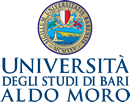Il dialogo interreligioso e lo sviluppo democratico in Albania
DOI:
https://doi.org/10.15162/2612-6583/1074Parole chiave:
Ruolo religioni, dialogo interreligioso, persona umana, identità, sviluppo democraticoAbstract
Religion has always been considered an indispensable element in Albania, because it gives meaning to the life of the people and because it has always been closely linked to albanesity. Albanesity unites the people and religion gives meaning to people's lives, because it indicates values and priorities. Albanesity and religion define identity character of People and they are the interior strength, which has allowed to overcome many difficulties and crises. The particular link between religion and identity has also attributed to religious communities a public role in the construction of culture and society. They played a public role for social dialogue and for the construction of a free and democratic society. In Albaniathe mission of religions was not only spiritual, but cultural and social, expanded to concrete existential problems with the aim of giving answers to the needs of the people. They have allied themselves to build a different and better Albanian society to affirm the value of human dignity and people's rights of freedom. Dialogue between religions is fostered by the common goal: ie to protect personal freedom, religious freedom, democratic development and social well-being. Dialogue and tolerance between religions are a civil method of coexistence and answer to the needs inside the country. Dialogue between religions has certainly made it possible to protect the fundamental rights of the human person, encouraging cultural growth and a more adequate state legislation to guarantee the dignity of the person in a context that has known atheism and persecution for many years. Religious peace and dialogue among religions are elements of democracy, which inAlbania represent the conquest of status and dignity, considering the lack of experience about meaning of the word democracy. The Albanian experience, similar to that of the Balkan countries, demonstrates the need to rethink the concept of democracy and its peculiar assets. It is necessary to understand that the democratic path after the dictatorship passes through the recovery of the religious and historical identity of the people. In this way they can live constitutional values. Interreligious dialogue, therefore, in addition to the intrinsic purposes intended for the reconstruction of a stable network of relations between religions, in Albania constitutes a consolidated instrument of the suitable daily experience, despite the critical and repeated socio-political difficulties, to favor the establishment of the values of democracy, to support efforts for peace and tolerance, to foster the development of people and to support the integration process in society.





